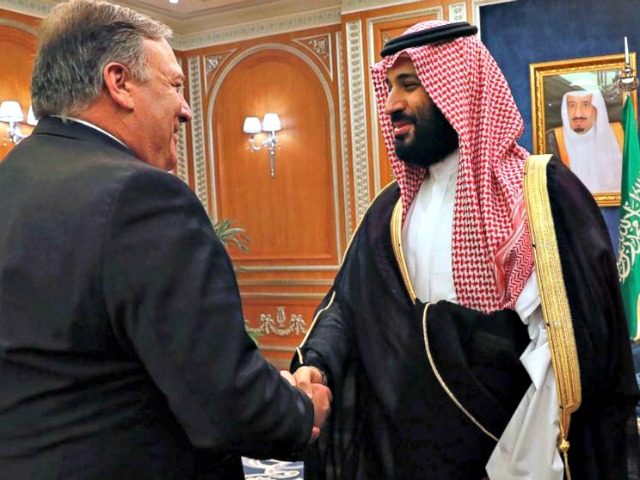Secretary of State Mike Pompeo on Wednesday urged Saudi Arabia to normalize ties with Israel, and added Washington supports a “robust program of arms sales” to Riyadh.
The news comes two months after the U.S.-brokered Abraham Accords were signed between Israel, the United Arab Emirates and Bahrain.
“We hope Saudi Arabia will consider normalizing its relationships as well. We want to thank them for the assistance they’ve had in the success of the Abraham Accords so far,” Pompeo said after talks with Saudi Foreign Minister Prince Faisal bin Farhan Al Saud.
“We hope, too, that the Kingdom will encourage the Palestinian side to return to dialogue and negotiation with Israel,” he said.
“Doing so would only add to the Kingdom’s tremendous progress in promoting regional peace and prosperity on many fronts,” he added.
Pompeo said the agreement “contributed greatly to our shared goals for regional peace and security.”
President Donald Trump on Tuesday celebrated the signing of the “Abraham Accords,” a peace deal between Israel and Bahrain and the United Arab Emirates brokered by the United States. https://t.co/kim5DSQiPs
— Breitbart News (@BreitbartNews) September 15, 2020
“They reflect a changing dynamic in the region, one in which countries rightly recognize the need for regional cooperation to counter Iranian influence and generate prosperity,” Pompeo said.
Pompeo said the United States “supports a robust program of arms sales to Saudi Arabia,” saying it would help “protect its citizens and sustains American jobs.”
Soon after the announcement to normalize ties between the UAE and Israel in August, Saudi Arabia said it would not normalize relations with the Jewish state before a peace deal is reached.
“Peace must be achieved between the Israelis and the Palestinians, on the basis of international parameters. Once this goal is achieved, anything is possible,” al-Saud said at the time.
However, Saudi has tacitly endorsed normalization with other Gulf states through a series of steps such as last month’s announcement that Israeli planes bound for the UAE could use its airspace.

COMMENTS
Please let us know if you're having issues with commenting.